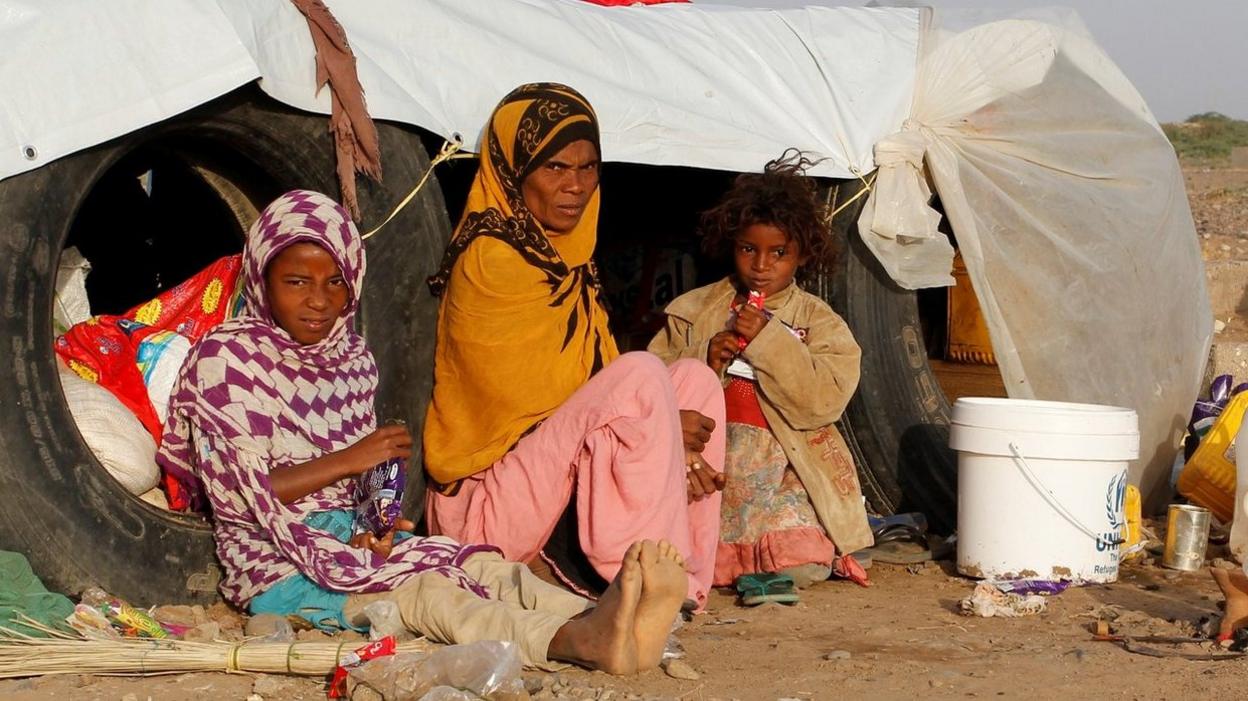Humanitarian crisis: What can I do to help?
- Published
Yemen's war leaves children on the brink of famine
The UN warned at the weekend that the world was facing its largest humanitarian crisis since 1945, with 20 million people facing the threat of starvation and famine in Yemen, Somalia, South Sudan and Nigeria.
Readers responded to our story by asking what they could do to help.
Here's some advice and some links for anyone wanting to donate time, money or goods.
Donating money
Most charities encourage financial donations above all.
"In the event of a disaster, we don't send volunteers abroad because we already have thousands of volunteers on the ground, already established and working in these areas," said Ben Webster, head of emergencies at the British Red Cross. Managing new volunteers "can make this a little bit trickier".
Lily Caprani, from Unicef UK, agreed, saying that "while we appreciate all volunteers... the best thing the public can do to help is to donate so organisations like Unicef can continue their life-saving work".
Donations to the disaster fund make a much bigger difference - especially when Gift Aid is used to add another 25% from the UK government. For the Red Cross, that resulted in an extra £15m in 2015.
Some of the main charities working in the regions highlighted by the UN are:
The Disasters Emergency Committee (DEC) Yemen appeal, external, which partners with the BBC to raise funds
The International Rescue Committee (UK) , external- or their US homepage, external
Volunteering abroad
However, there are still ways you can volunteer on the ground.
The UN has about 7,000 volunteers working in the field and you can apply online to join a pool run by the UN Volunteers programme , external(UNV).
You need to be over 25, speak English, Spanish, or French and have a university degree or higher technical diploma and two years' relevant experience.
"Yes, you can sign up to physically go to a destination," a UN spokesperson said - but "there is a very stringent selection process".
By joining the UNV's talent pool, you'll be allocated where your skills are needed. They are currently appealing for medical doctors to work in Sub-Saharan Africa, for example, among other areas.
"We recruit people with a desire… but we wouldn't field someone anywhere there isn't a need for them."
If successful, volunteers get all the same professional and security training that a full UN agency staff member receives.
But the United Nations isn't the only option.
Voluntary Service Overseas (VSO), external also works with volunteers in the field
Give a Day Global, external encourages travellers to donate one day of their vacation to volunteer for a charity wherever they are
Relief Web, external advertises paid or voluntary positions in the aid sector
Redr UK, external runs training courses to help people keen on volunteering overseas improve their skills and knowledge
Volunteering at home
Most large UK-based charities don't send volunteers abroad, preferring to work with local staff instead.
But charities such as Save the Children, Oxfam, and Unicef work with volunteers in the UK in a range of capacities.
They have information on their websites about how you can sign up.
The UNV also doesn't just dispatch people to foreign countries - but uses online volunteering you can do from home to provide humanitarian support. That can include mapping data for safe transport routes, or translating messages.
The Red Cross run a similar programme through their Missing Maps Project, external - a collaboration with their American counterparts and Doctors Without Borders. Thousands of volunteers worldwide take part to map regions that are not well recorded.
In southern Haiti, they mapped parts of the country in a few days before Hurricane Matthew struck - maps that were used to get aid to people in the weeks that followed.
Sending goods
Most charities don't accept goods donations, such as second-hand clothes, as they are too costly to process - often costing more to send than the items are worth.
"Whenever possible, we buy the items we need to respond to an emergency in the affected country or in the region," Ben Webster from the Red Cross said.
"This benefits the local economy by helping local markets and traders and helps us reduce transport costs and speed up delivery times."
But the Global Hand, external organisation can help you offer goods and services and partner you with people who need them.
Goods can also be donated to charity shops in the UK, which pass on proceeds to the charity, and you can volunteer your time to work in shops or on other UK-based projects.
Oxfam has a well-established network of more than 650 shops, which they use to turn material goods into funds for their overseas operation. Volunteers sort and price every item, sell them in store, online or abroad - and, in a worst-case scenario, recycle them so they don't end up in landfill.
'Getting worse every day'
No matter how they ask for help, all the charities agreed on the seriousness of the current crisis.
Fay Hoyland, currently in Somalia for Save the Children, said she had never seen a situation as bad.
One clinic she visited in Garowe has had its caseload double in a month. "It is full of extremely sick children, and their mothers told me they are terrified their children might die," she said.
And with just half of the UN's appeal for $825m pledged so far, donations matter, she said.
"We're here to save lives, we're water trucking, distributing food and deploying mobile health units, but we need more money to be able to reach everyone that needs our help."
- Published11 March 2017
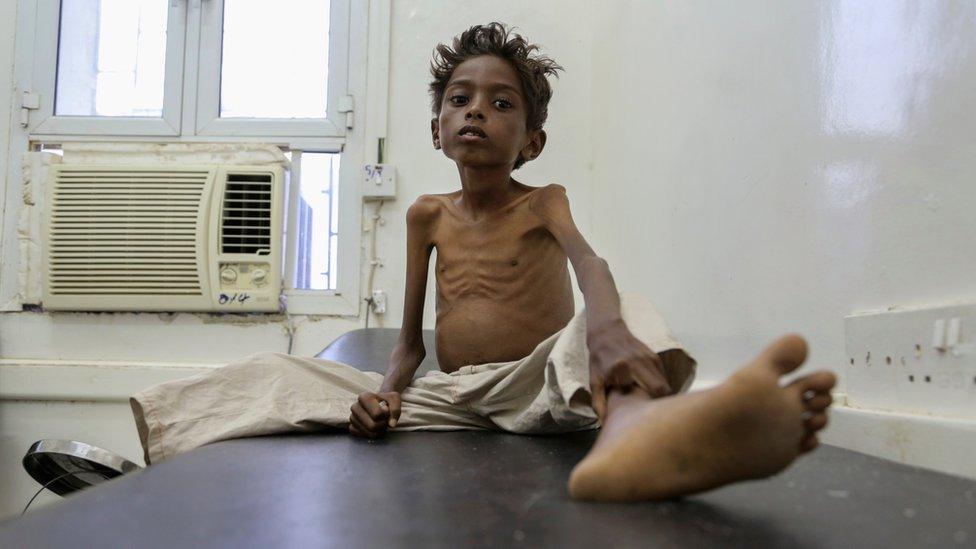
- Published26 February 2017
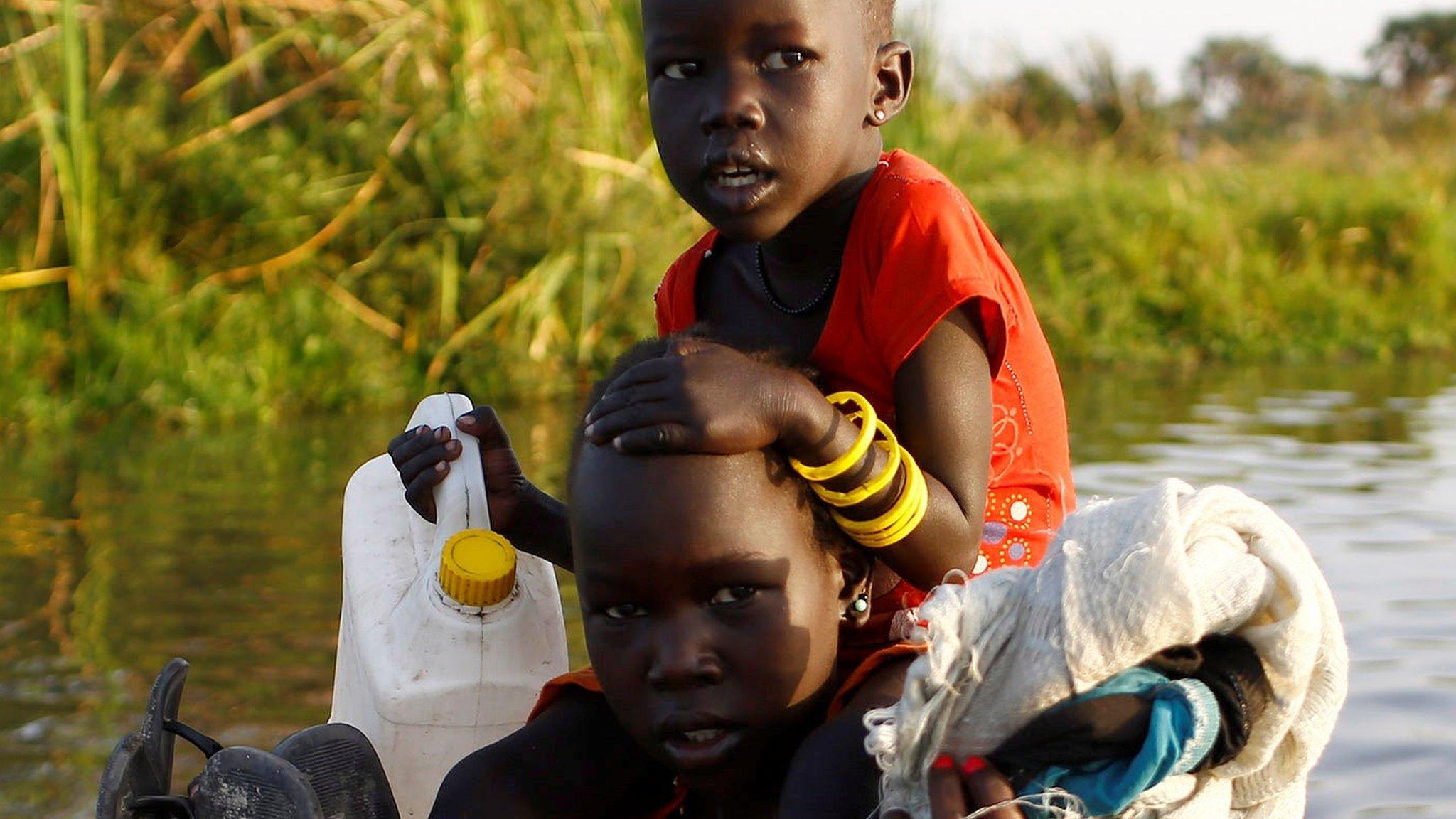
- Published21 February 2017
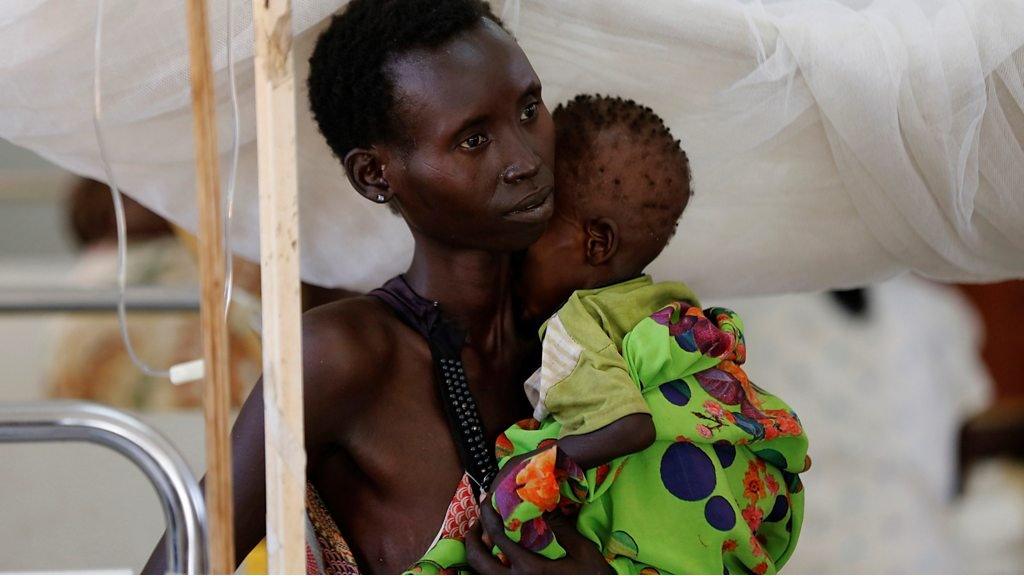
- Published28 March 2017
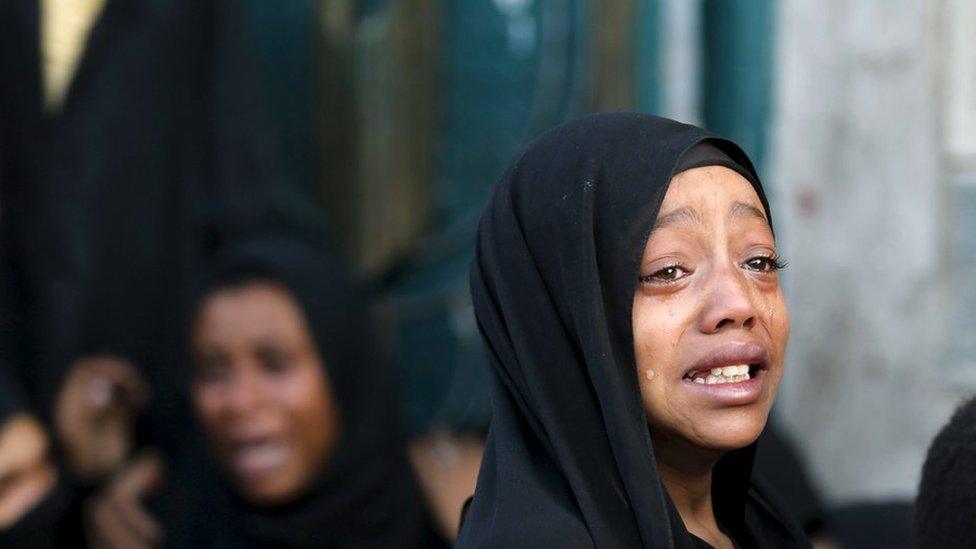
- Published28 February 2017
